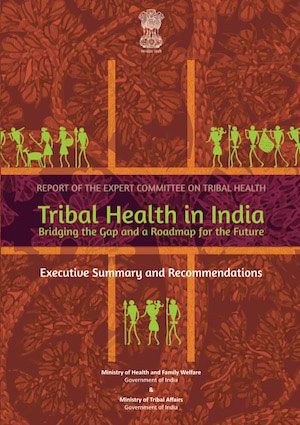Maarten Bode, “Traditional Indian Medicine (TIM) is not just Ayurveda” in IIAS Newsletter (International Institute for Asian Studies) | No.70 | Spring 2015, p. 47
The manifesto in the Focus section ‘Theorizing Heritage’ (the Newsletter #69) gives me the opportunity to discuss the political nature of narrowing the many forms of contemporary Traditional Indian Medicine (TIM) to Ayurveda as India’s national medicine. Indian nationalist politics affect the recognition, ownership, and management of the wide spectrum of traditional medicines in contemporary India. What is needed is a dialogue between two important stakeholders: the Indian state and local communities. […]
There are approximately 500,000 state sanctioned practitioners of Indian medicine, who have at least a college degree in one of the systems of Indian medicine that fall under the Department of AYUSH (Ayurveda, Yoga, Unani, Siddha and Homeopathy). Approximately 450.000 of them have a bachelors or master degree in Ayurveda. However, it is estimated that 80% to 90% of these graduates practice western biomedicine. The large majority of practitioners of TIM can be found in India’s heterogeneous folk sector. Here, around two million, often semi-legal, health care providers offer herbal based treatments for common and chronic diseases. Apart from these generalists we see specialists treating ailments such as jaundice, paralysis, skin disorders, eye problems, broken bones, poisonous bites, and psychosocial problems. Local midwives who look after the health of mother and child are probably the largest group among them. These folk practitioners are an integral part of one of India’s many local cultures. Their treatments are not standardized. On the contrary, they respond to local social-cultural and ecological realities. This probably increases their effectiveness.
It is common practice among Indian (health) authorities to conflate all forms of TIM with classical Ayurveda as it is represented by scholarly works of the first millennium. […]
The claim that all forms of Indian medicine fall under ‘Ayurveda’ and the notion that Ayurveda represents an unbroken tradition from the Veda’s onwards, must be contested on two grounds. Firstly, Ayurveda is highly diverse. Processes of biomedicalisation and scientisation have made the Ayurveda promoted by the central Indian government very different from canonical Ayurveda. Secondly, local forms of TIM have their own logic, treatment procedures, and materia medica. To fixate Ayurveda and consider the term to be a synonym for the many local forms of TIM is a political act. It also denies the huge social asymmetries between the politicians and bureaucrats of the central government and local traditional healers and their patients.
Maarten Bode, Medical anthropologist, Anthropology Department, University of Amsterdam; Institute of Transdisciplinary Health Sciences and Technology, Bangalore.
Source: “Traditional Indian Medicine (TIM) is not just Ayurveda” IIAS Newsletter (International Institute for Asian Studies) | No.70 | Spring 2015, p. 47
Address: http://www.iias.nl/sites/default/files/IIAS_NL70_FULL.pdf
Date Visited: Thu Mar 12 2015 19:55:34 GMT+0100 (CET)
Find publications by reputed authors (add “open access” for freely downloadable content)
PDF-repository: texts quoted & further reference (Google Drive) >>
“It was assumed that tribal people have same health problems, similar needs and hence the uniform national pattern of rural health care would be applicable to them as well, albeit with some alteration in population: provider ratio. The different terrain and environment in which they live, different social systems, different culture and hence different health care needs were not addressed.”– Abhay Bang, Chairman, Expert Committee on Tribal health (2018 Report of the Expert Committee on Tribal Health)
Learn more >>
Download Tribal Health in India PDF (35 MB) >>
Searchable file (backup):
PDF (OCR 70 MB) >>

Learn more
Atree.org | Ashoka Trust for Research in Ecology & the Environment (posts)
Biodiversity | Hyderabad biodiversity pledge | Nilgiri Biosphere
Climate change | Audio | The Climate Question (BBC Podcast)
eJournals & eBooks | Background guide for education
eLearning: Center for World Indigenous Studies
Forest Rights Act (FRA) | Hunter-gatherers | Legal rights over forest land
Health and nutrition | Recommendations by the Expert Committee
“The tribal food basket has always been diverse and nutritious”
United Nations on climate change
What is the Forest Rights Act about?
Who is a forest dweller under this law, and who gets rights?
